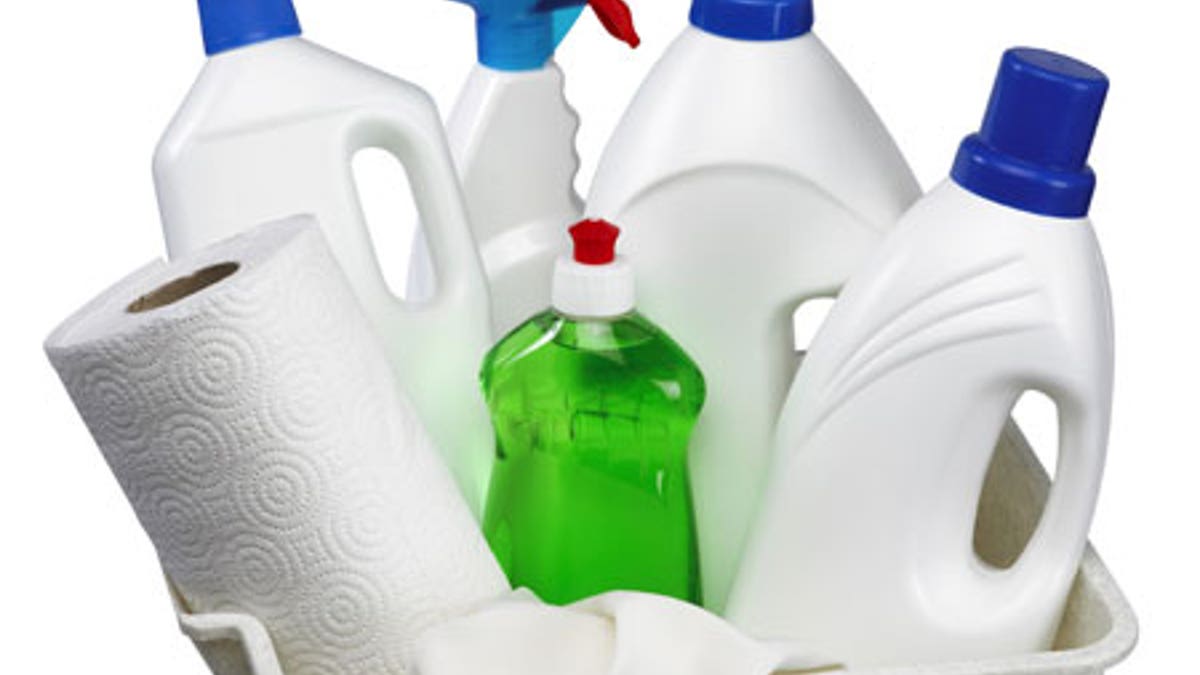6 chemical hazards in your home
{{#rendered}} {{/rendered}}
Like most people, you probably don’t think twice about slathering on facial moisturizer or microwaving a plastic dish. But common products can harbor harmful chemicals that have been linked to cancer, neurological disorders, heart disease, asthma and more.
Fortunately, there are ways to protect yourself and your family. Learn about hidden chemical hazards around your home and how to protect your family from them.
1. In your bathroom
Watch for parabens, para-dichlorobenzene and phthalates in your bathroom. The scary sounding toxics are commonly found in products you use everyday like toothpaste (parabens), air freshners (para-dichlorobenzene) and moisturizers (phthalates). Parabens and phthalates have been linked to increased estrogen levels in girls and women and para-dichlorobenze is thought of as a possible carcinogen.
{{#rendered}} {{/rendered}}______________________________________________________
More From All You:
Keep it Clean! 6 Ways to Detox Your House
4 Simple Things To Boost Your Detox-Ability
10 Secrets to Affordable Organic Food
Eat Up! 10 Best Natural Foods for Your Buck
__________________________________________________
2. Detox your bathroom
Read product labels carefully. If you find a word you can't pronounce or it ends in "paraben", that should be a tip-off that a product may contain toxic chemicals.
Use green cleaning products and paraben-free cosmetics. Companies like Burt's Bees and Seventh Generation tend to be good choices but you can find more options by checking out our buying guide.
{{#rendered}} {{/rendered}}3. In your kitchen
Even if you are careful, you may be unintentionally introducing toxics into your diet. Avoid these two common-kitchen hazards:
►Bringing leftovers for lunch to save money? Check your plastic container. Hard plastics found in baby bottles and other plasticware may contain the chemical bisphenol A (BPA), which has been linked to serious health concerns such as breast cancer and heart disease.
4. Detox your kitchen
Keep plastics away from the microwave. Don't microwave platic containers or pour hot liquids into them—BPA can leach into your food. Use microwavable safe, non-plastic bowls instead.
{{#rendered}} {{/rendered}}Pick canned. Choose canned light tuna over albacore, which has more mercury.
Drink up. Drink pleanty of water, it helps to flush out vital organs.
5. In the closet
By drying cleaning, you may just be bringing hazards into your home. Perchloroethylene (perc) is the most common dry-cleaning solvent—an estimated 85 percent of dry cleaners in the U.S. use it. While perc cleans delicate fabrics without shrinking or fading, studies show that inhaling high levels of perc can canuse liver cancer, kidney damage and memory loss.
{{#rendered}} {{/rendered}}6. Detox your closets
Air it out. After picking up dry cleaning, tear-off plastic containers and air out clothes before putting them in your closet.
Open windows. Try cracking open the window for at least 10 minutes a day.
